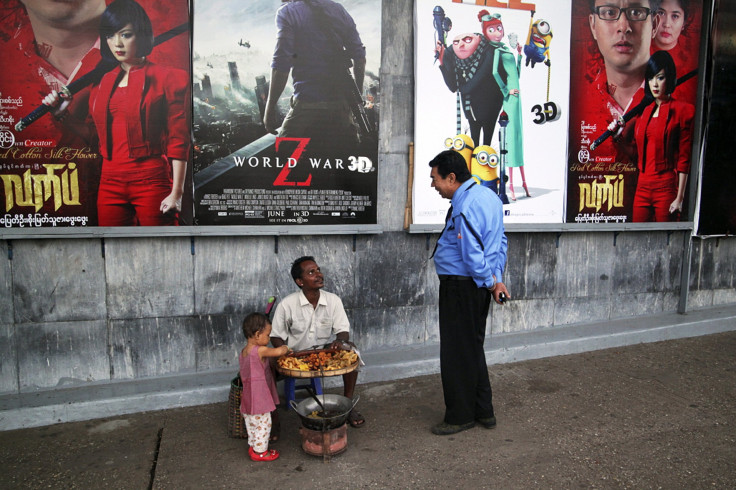Myanmar Cinema: Domestic Film Villains No Longer In Demand As More Western Films Are Shown

Myanmar’s opening is good news for almost everyone – except for actors who played villains in domestic film productions who are suddenly out of work, as Western films invade the Southeast Asian nation, along with the bigger and badder bad guys in them.
For years, all the Burmese people had to entertain them were badly made domestic films featuring villains with twisted faces, but now that the world’s films are trickling in with their big-budget special effects and foreign bad guys, it’s getting tougher to make a living as a native heavy, the Associated Press reported Monday.
Cinematic villains were once so ubiquitous that the actors who portrayed them had a trade union – the Ko Lu Chaw, the Handsome Guy Group. Each morning, these men gather in Little Hollywood, a tightly packed enclave of video production houses and movie poster studios in Yangon, Myanmar’s commercial center, and wait to be called on to act the villain in a film or video for a day.
But these jobs are becoming rare – and less lucrative too. A day or two on a low-budget video now earns the men just a few hundred kyat (less than $1 U.S.).
"I worry," said Phone Naing, a 45-year-old actor. "I used to work non-stop. But I haven't had regular work in six months."
The government privatized the film industry in 2010, and decaying, unprofitable theaters that once survived on government backing began to close. As a result, films were supplanted by cheap home videos – only 17 features were made last year, compared to 60 just five years ago, according to the Myanmar Motion Picture Organization. By contrast, more than 1,000 videos were made.
The masses have also begun to turn away from overwrought Burmese action films, the Associated Press reported, and prefer instead romance, comedy and even horror films, perhaps because the impoverished nation is hunger for hope and laughter.
As more films from India, South Korea, Thailand and, of course, the real Hollywood, are making their way into the country now, the audience is beginning to realize the lack of production values in the homegrown fare. To survive, Burmese filmmakers will have to change their ways.
"They have to decide how to focus their film industry,” said Tom Vick, the curator of film at the Smithsonian Institution’s Freer/Sackler Gallery, and the author of “Asian Cinema: A Field Guide. “Once countries open up, suddenly Hollywood dominates the movie screen. ... If 'Skyfall' is taking over, what hope does a local filmmaker have?"
© Copyright IBTimes 2024. All rights reserved.





















